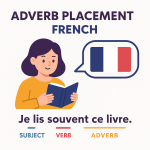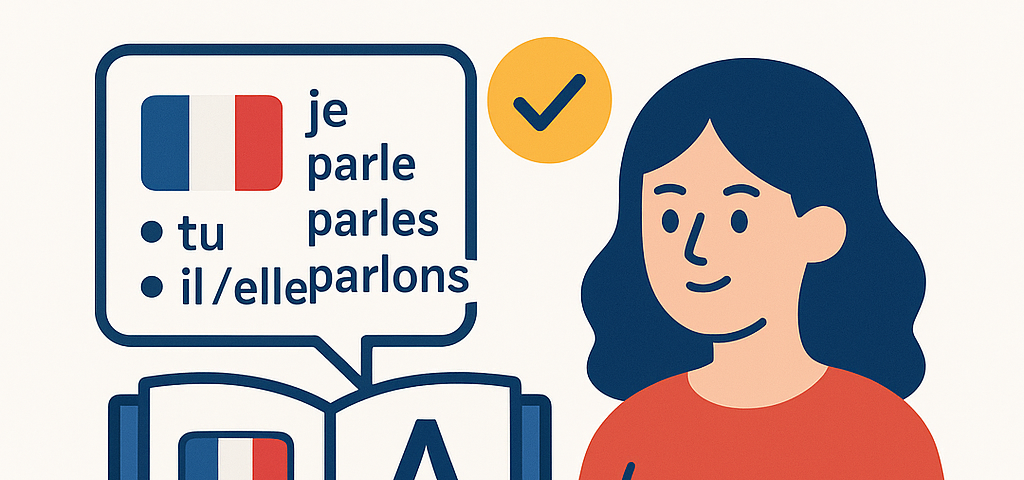
Mastering Advanced Adverb Placement in French: A Guide for Serious Learners
June 12, 2025
Mastering the Nuances of Present Tense Conjugation in French: An Advanced Guide
June 12, 2025French verb conjugation is notoriously complex, but one of its less explored aspects is the mastery of compound tenses. This skill is critical for parents, teachers, and advanced French learners because it greatly enhances fluency and communication effectiveness. At LearnFrenchTutor (LFT), our mission is to provide quick insights into these advanced topics to facilitate smoother language acquisition and better conversational abilities for French students.
The Fundamentals of Compound Tenses
Compound tenses in French are formed using auxiliary verbs (avoir and être) plus a past participle. Understanding the formation of these tenses is essential as they represent actions completed in the past. Mastery of compound tenses allows students to discuss events and actions with depth.
- Pure past actions are described using the passé composé.
- Progressive aspects are conveyed through the passé récent.
- Complex narrative sequences are expressed using the plus-que-parfait.
Common Mistakes in Using Compound Tenses
Even advanced students can falter when applying compound tenses. Frequent mistakes arise from misunderstanding auxiliary verb usage, particularly the choice between avoir and être, and the agreement of past participles. Identifying these pitfalls can significantly improve accuracy in communication.
- Confusion between auxiliary verbs leads to incorrect multiplicative forms.
- Neglect of gender agreement can result in awkward phrasing.
- Misapplication of tense can distort intended meanings.
Teaching Strategies for Compound Tenses
Effective teaching strategies can demystify French compound tenses. Teachers can leverage interactive exercises and contextual learning to reinforce comprehension and retention. This hands-on approach fosters deeper engagement with the material.
- Role-playing scenarios encourage real-life applications.
- Use of multimedia resources to showcase compound tenses within songs, films, and literature.
- Gamification of learning allows for repeated practice in a fun environment.
Real-World Applications: A Case Study
Let’s explore a practical example: a conversation where someone describes their week using compound tenses. This clearly illustrates how compound tenses convey not only completion but also the sequence and relation of events, showcasing the clarity they bring to conversations.
- “J’ai mangé.” (I ate) – completion of an action.
- “Je suis allé.” (I went) – use of être to indicate movement.
- “J’avais étudié.” (I had studied) – use of plus-que-parfait to show a prior action.
Resources for Continued Learning
For students aiming to master compound tenses, various resources are available: online exercises, verb conjugation apps, and community forums can provide continuous learning opportunities. Engaging with these resources not only enhances grammatical proficiency but also encourages a richer understanding of the French language.
- Mobile apps can provide daily exercises on tenses.
- Online language communities can offer peer feedback on usage.
- PODcasts are great for listening practice tied to tense usage.

